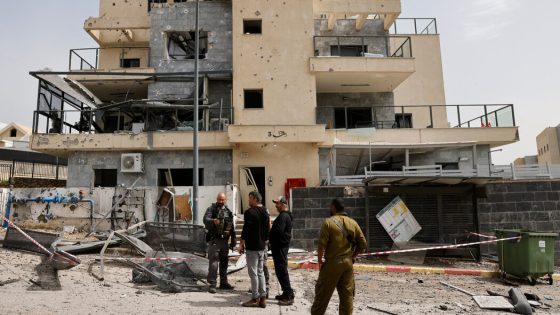Israel’s defense minister, Yoav Gallant, and the U.S. defense secretary, Lloyd J. Austin III, met at the Pentagon on Tuesday to discuss the rapidly deteriorating humanitarian conditions in Gaza and Israel’s plan to invade the southern city of Rafah, where U.S. officials have warned that a major military action could lead to catastrophe.
The meeting came amid growing friction between the two allies a day after the U.S. decision to allow the passage of a U.N. resolution calling for an immediate cease-fire in Gaza. Afterward, Israel’s prime minister, Benjamin Netanyahu, declared that he was scrapping a plan to dispatch a delegation to Washington to discuss the potential offensive in Rafah.
Remarks by Mr. Gallant and Mr. Austin before the meeting underscored the divide. While both noted their countries’ commitment to Israel’s security, Mr. Gallant emphasized what he said was the urgent need to destroy Hamas, secure the release of Israelis taken hostage in the Hamas-led Oct. 7 attacks and “ensure Israel’s military edge and capabilities.”
Mr. Austin focused on the dire consequences the war has had for Palestinian civilians. “The number of civilian casualties is far too high, and the amount of humanitarian aid is far too low,” he said. The safety of Palestinians in Rafah, where more than a million people are holed up, was a “top priority,” he added.
After the meeting, a senior Defense Department official said Mr. Austin presented the broad outlines of the Biden administration’s alternative approach to a major combat operation in Rafah. The main points were a focus on precision targeting intended to root out Hamas leadership, credible and effective steps to evacuate civilians sheltering there, an increase in humanitarian aid and securing the border between Gaza and Egypt.
The official, who spoke on a call with reporters on the condition of anonymity to discuss confidential talks, said that the Israelis were receptive to the priorities raised by Mr. Austin and that there would be additional meetings in the future.
Senior administration officials have said that any Israeli operation that did not adequately mitigate the risks to civilians in Rafah would be a mistake and exacerbate the dire living conditions in the enclave. Without proper planning or preparations, the senior Defense Department official said, a major ground operation into Rafah could dramatically restrict the flow of already insufficient humanitarian assistance into Gaza when just the opposite needs to happen.
Speaking with reporters after his meeting with Mr. Austin, Mr. Gallant said Israel would not be deterred in its war aims. “Our goals are simple: We need to destroy Hamas as a military and governing organization in Gaza,” he said. “It means that the military framework must be destroyed.”
“The ability of Hamas to act as an organized military with a centralized command and control must be destroyed,” he said. “There is not a military capability, there is a terrorist capability.”
The Israeli minister said he also discussed with his American counterpart maintaining Israel’s qualitative military advantage in the region (American officials said the sales of F-15 and F-35 fighters and Apache helicopter gunships were discussed). And Mr. Gallant said he and Mr. Austin talked about the urgency of efforts to recover more than 100 hostages still held by Hamas and the increasingly dire humanitarian crisis in Gaza.
“We discussed the humanitarian efforts in Gaza — not only in terms of bringing the aid in but the real issue of distribution,” Mr. Gallant said. “Hamas is doing everything to sabotage the delivery of aid and to create pressure at the expense of the Palestinian people. This includes blocking routes and looting.”
Mr. Gallant — who was also expected to sit down with the C.I.A. director, William J. Burns, a key figure in the negotiations between Israel and Hamas — met with Mr. Austin a day after the United States abstained from a vote on a cease-fire resolution at the U.N. Security Council, a decision that Mr. Netanyahu said “harms the war effort as well as the effort to liberate the hostages.”
Hopes for a breakthrough in the talks for a deal to halt the fighting and secure the release of Israeli hostages appeared to remain distant on Tuesday. Hamas said late Monday that the latest proposal on the table did not meet its demands.
The talks in recent days have been hung up on the number of Palestinian prisoners to be released, in particular those serving extended sentences for violence against Israelis, according to two U.S. officials and an Israeli official, who spoke on the condition of anonymity to discuss the sensitive matter.
Last week, the U.S. delegation — led by Mr. Burns — proposed a compromise to try to bridge the gap, which Israel has accepted, according to the Israeli official and another person familiar with the negotiations. A Hamas statement on Monday appeared to reject it, saying it was demanding Israel’s withdrawal from Gaza and “a true prisoner exchange.”
Source Agencies


